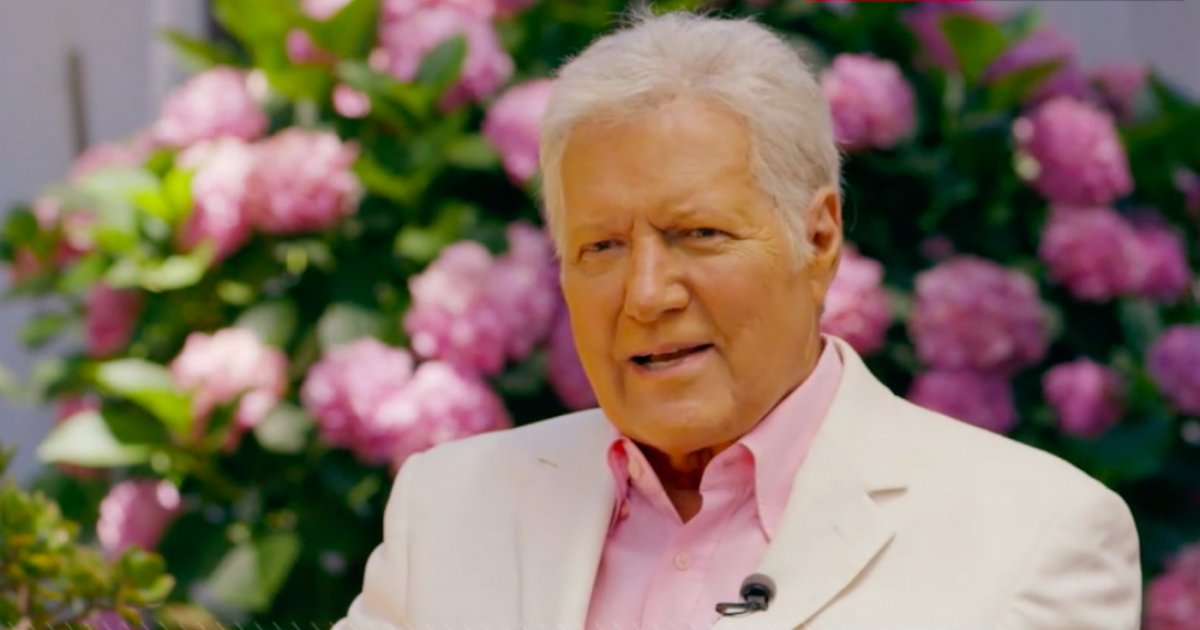Honoring Alex Trebek
- Jeopardy! host Alex Trebek, who died in November from pancreatic cancer, won best game show host at the Daytime Emmy Awards. Jeopardy! also won best game show.
- Trebek’s children accepted the award on his behalf noting, “he was always excited to go to work, even during his battle with cancer.”
- According to the American Cancer Society, 60,000 people will be diagnosed with pancreatic cancer in a year and the five-year survival rate is just 9%.
Trebek, who died in November at age 80 following a brave, public battle with pancreatic cancer, won a posthumous Daytime Emmy Award for best game show host, while the show won best game show. Trebek hosted Jeopardy! for 37 years and filmed the show up until 10 days before his passing.
Read More"He was always excited to go to work, even during his battle with cancer. He was so fortunate that he was able to do what he loved, and we know that he not once took it for granted,” Emily said.
It was Trebek's third straight victory and sixth overall in the category. He was nominated a record 32 times during his career, according to the Associated Press.
Jeopardy! executive producer Mike Richards dedicated the best game show trophy to Trebek.
"He was more than just a game show host, he was a legend, a towering figure," Richards said in pre-taped remarks. "He believed that Jeopardy! was more than just a game show. He loved it because it stood for facts, competition, and the celebration of intelligence."
Dr. Allyson Ocean explains why pancreatic cancer is so hard to treat
The Alex Trebek Effect
The one-year survival rate for pancreatic cancer is just 9% (a fact that Trebek shared during an episode of Jeopardy!), and Trebek beating the odds by passing that milestone inspired so many others that their fights are not over. In addition to discussing symptoms he experienced (which he also shared on the game show and ended up helping a man catch a diagnosis early), he also shared treatments he went through during the process. Initially he went through chemotherapy, but later turned to an experimental therapy which helped save Senator Harry Reid's life.
In addition to sharing information about pancreatic cancer, he also was extremely honest with his roller coaster of emotions he experienced while going through treatment. During his one-year update, Trebek shared that side-effects to the treatment certainly did get him down many times, and he considered giving up. However, he knew that he had an obligation to fight as hard as possible for his family and friends.
"I'd be lying if I said the journey had been an easy one. There were some good days. But a lot of not-so-good days. I joked with friends that the cancer won't kill me; the chemo treatments will. There were moments of great pain; days when certain bodily functions no longer functioned, and sudden massive attacks of great depression that made me wonder if it really was worth fighting on," Trebek had said in a video. "But I brushed that aside quickly because that would have been a massive betrayal. A betrayal of my wife and soulmate, Jean, who has given her all to help me survive."
Navigating a Pancreatic Cancer Diagnosis
Although pancreatic cancer survival rates have been improving for decades, it's still considered to be one of the most difficult diseases to successfully treat. An exception to this is if the tumor is still small enough and localized enough to be operated on. Most pancreatic cancers are particularly aggressive and progress rapidly, and that's why it's so important that it to be caught early. According to the American Cancer Society, 60,000 people will be diagnosed with pancreatic cancer in a year and the five-year survival rate is just 9%.
One of the main reasons the disease is so hard to treat is due to the stroma a barrier that surrounds the cancer cells and prevents the chemotherapy from breaking through and taking effect to fight the cancer.
"Think of pancreatic cancer as an oatmeal raisin cookie and the raisins are actually the cancer cells, and the cookie part is actually all the stroma around it," Dr. Allyson Ocean, a medical oncologist at Weill Cornell Medical Center, explains to SurvivorNet. "And imagine having to navigate through all that stroma for a treatment to be able to get into a cell to kill it. So that's why the treatments just really aren't good enough to penetrate the cancer. But we're improving, we're getting better treatments."
Dr. Anirban Maitra breaks down challenges that come with screening for pancreatic cancer
Contributing: Shelby Black
Learn more about SurvivorNet's rigorous medical review process.


